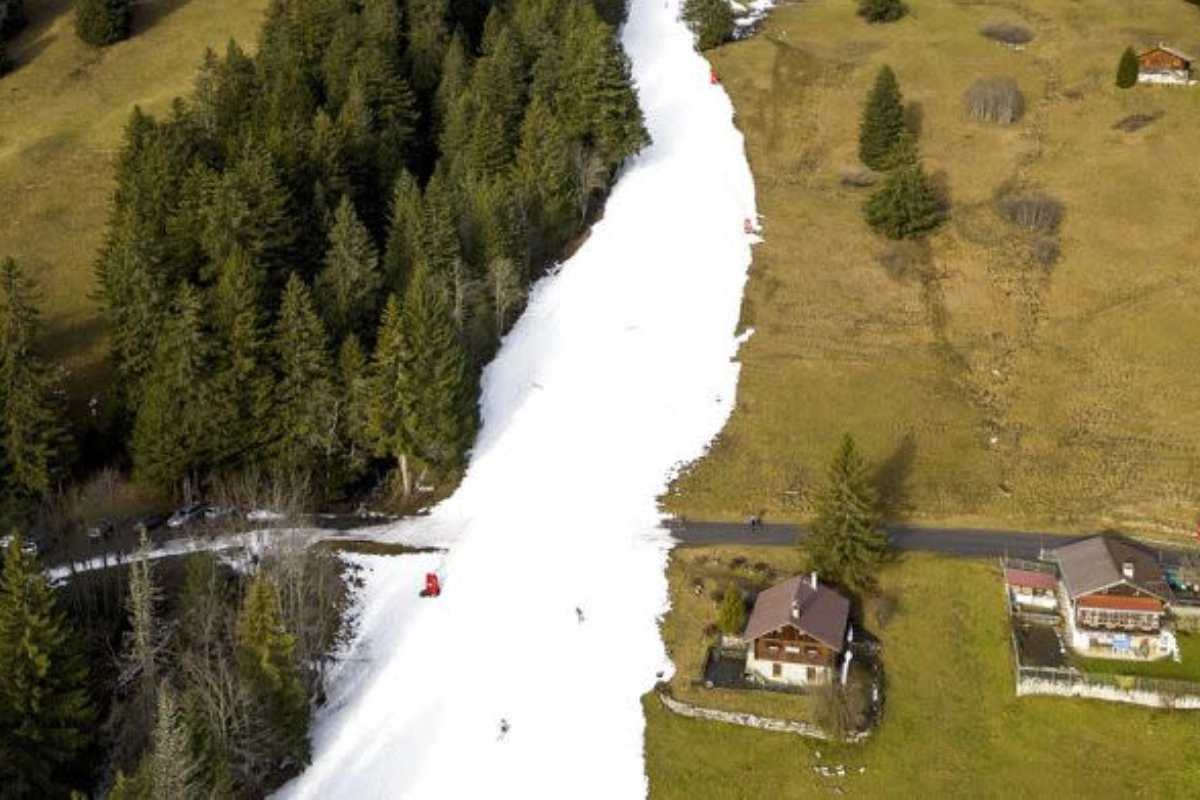Europe: At least eight European nations, including Poland, Denmark, the Czech Republic, the Netherlands, Belarus, Lithuania, and Latvia, reported having the warmest January day ever. The previous few days have seen a startling decline in weather records across Europe, according to meteorologists who spoke with The Guardian.
In Korbiel3w, Poland, the temperature reached 19°C, which is the kind of temperature the hamlet is more accustomed to in May, according to statistics compiled by climatologist Maximiliano Herrera who studies severe temperatures. Additionally, the observed temperature is 18°C higher than the January annual normal of 1°C.
Javornik, in the Czech Republic, recorded a temperature of 19.6°C, compared to the seasonal average of 3°C. The temperature in Belarus, where it typically hovers around zero in January, reached 16.4°C on Sunday, breaking the nation’s previous record for the highest temperature in January by 4.5°C.
Germany, northern Spain, and southern France all reported record-breaking high temperatures for January elsewhere on the continent. The only regions without records were Norway, Britain, Ireland, Italy, and the southeast Mediterranean.
Also Read: Delhi: New CCTV verifies witness account, car takes U-turn, drags woman| Watch
How are experts analysing the current situatuation?
According to Herrera, the circumstance qualifies as “the most extreme incident in European history.” Alex Burkill, a senior meteorologist at the Met Office, echoed Herrera and said, “It’s been extreme heat across a huge area, which is almost, to be honest, unheard of.”
Burkill claimed that high pressure over the Mediterranean had drawn in a warm air mass that had formed off the west coast of Africa and had moved northeast across Europe from Portugal and Spain. He added that the south of England had seen “exceptionally warm weather.” I believe seven locations in southern England had their warmest New Year’s Eve on record, he continued.
The temperatures in Europe, according to meteorologist Scott Duncan, are “staggering.” The weatherman declared, “This blows last year’s exceptionally warm new year out of the water.”
Also Read: No foreigner can buy property in Canada. Why? Here is the Reason
Cause of the record-breaking high temperature
He claimed that although La Nina and unusually warm sea surfaces may have contributed, it was difficult to pinpoint the precise cause of the record-breaking high temperature.
The warming atmosphere and oceans, he continued, are ultimately making records easier to break, and none of those things are new.
The extreme temperatures, according to Prof. Bill McGuire, who has written about the effects of climate collapse, are a sign of worse things to come.
According to him, “The most worrying thing about this is that, given the speed of global warming, it simply isn’t a surprise any longer. It is a small glimpse of a future that will see winter reduced to a couple of months of dreary, damp, and mild weather, with little in the way of frost, ice, or snow.”
Keep watching our YouTube Channel ‘DNP INDIA’. Also, please subscribe and follow us on FACEBOOK, INSTAGRAM, and TWITTER












